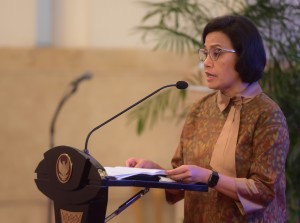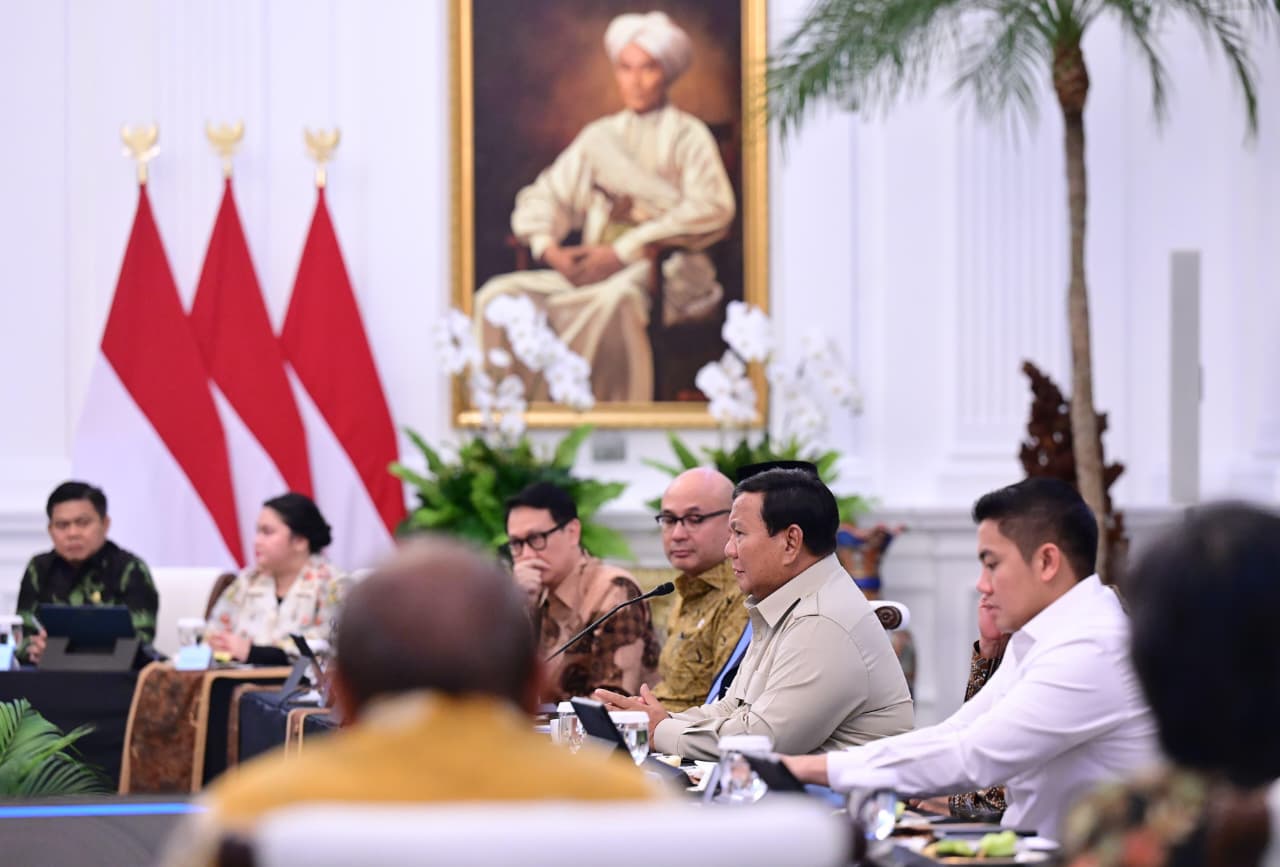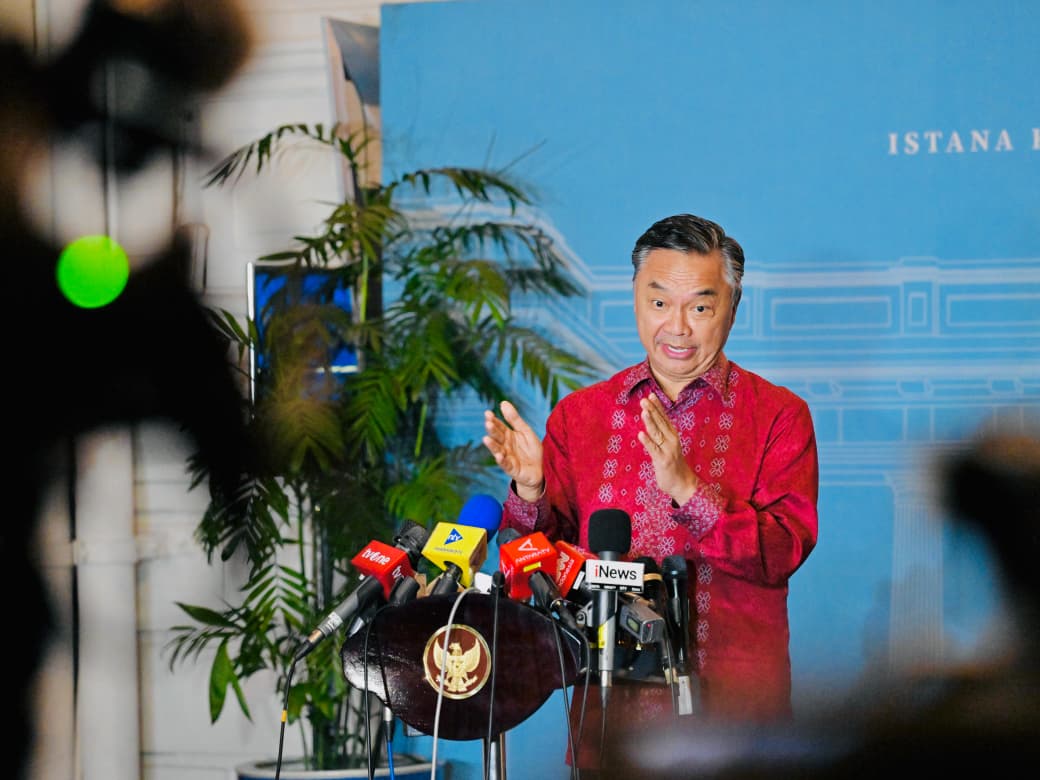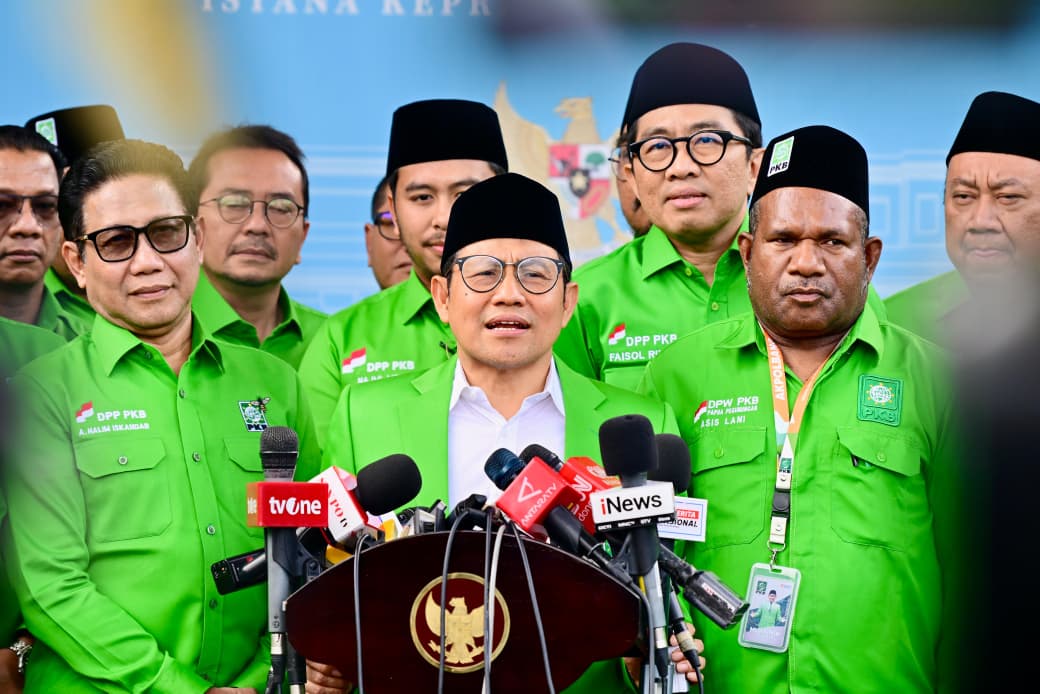Finance Minister: State Revenues Grow by 18.2%

Minister of Finance Sri Mulyani Indrawati in her report at the 2019 Budget Implementation Entry List (DIPA) and List of Allocation of Transfers to Regions and Village Funds, at Istana Negara, Jakarta, Tuesday (11/12). (Photo by: Rahmat /Public Relations)
Towards the closing of Budget Year 2018, Minister of Finance Sri Mulyani Indrawati reported that 2018 was not an easy year due to the highly dynamic global economic turmoil.
She added that until the third quarter, economic growth reached 5.17 percent, with inflation maintained at 3.2 percent from the assumption of 3.5 percent.
The exchange rate in the 2018 State Budget is predicted to stay at Rp13,400 but the realization until the end of November reached 14,260, she said.
For oil prices, in the 2018 State Budget it is assumed to be at 48 US Dollars and until the end of November the realization is 68.6 US Dollars per barrel.
However, according to Sri Mulyani, until the end of November 2018, state revenues grew by 18.2 percent.
This is a very high growth compared to that in 2017 which was only 6.5 percent, she said in her report at the 2019 Budget Implementation Entry List (DIPA) and List of Allocation of Transfers to Regions and Village Funds, at Istana Negara, Jakarta, Tuesday (11/12).
According to the Minister, taxation contributed to the growth of state revenues by 15.3 percent as of the end of November, compared to last year, which only grew 3.2 percent. The non-tax state revenue (PNBP), due to the price of oil and natural resources and the exchange rate, contributed 28 percent to the country’s revenue growth compared to the previous year at 22 percent.
Meanwhile, state expenditure up to November grew by 11 percent, with ministries and agencies spending with spending growth of 11.9 percent and still have one last month in 2018 to accelerate the implementation of the 2018 expenditure.
Until the end of November, the Minister continued, the 2018 State Budget is in a very healthy condition in which the deficit was recorded at 1.95 percent of GDP compared to that in November last year at 2.59 percent of the GDP. This deficit is the lowest since the 2014 fiscal year, Sri Mulyani added.
The primary balance position which in the end November recorded only negative Rp36 trillion, far lower than last year’s primary balance deficit of Rp139.1 trillion.
This means that in one year we have reduced the primary balance deficit by more than Rp100 trillion, the Minister said.
On that occasion, the Minister also said that the good position of the 2018 Budget is a positive start to enter the 2019 State Budget. In 2019, the assumption of the State Budget is 5.3 percent economic growth, 5.3 percent interest rate, Rp15,000 per US Dollar in exchange rates, and 70 dollars oil per barrel.
Sri Mulyani said that in discussions with the House of Representatives, the macro assumption was faced with a very dynamic situation. The oil price, which was assumed to be US $ 48 per barrel in 2018, has now reached 70 US dollars per barrel, and even has experienced a dynamic declining, while the exchange rate in the financial note that was conveyed by President Joko Jokowi Widodo Rp14,400, was set at Rp15,000 and then experienced a strengthening. The assumed 5 percent interest rate grows to 5.3 percent.
This means that in 2019 we will continue to face dynamic conditions, the Minister said.
For 2019, Sri Mulyani said that state revenues are targeted to reach Rp2,165.1 trillion, consisting of tax revenues of Rp17,086 and the PNBP of Rp378.3 trillion. Tax ratio in 2019 is estimated to reach 12.2 percent, the highest since 2016.
Growth in tax revenues is estimated to be at 15.4 percent. This is a lower growth than this year, in which our realization is 18.4 percent, but taxation has grown approximately by 15 percent, the Minister said.
The 2019 expenditure budget amounts to Rp2,461.1 trillion, which is allocated for the Central Government expenditure of Rp1,634.3 trillion, and for regional governments amounting to Rp855.45 trillion.
The Family Hope Program (PKH) funds to be increased two times bigger in order to further reduce poverty rates in Indonesia which are still above 9 percent.
The Government also will initiate an initiative to develop a disaster risk funding framework, both from the State Budget and in the disaster risk transfer scheme, through agricultural insurance, fisherman insurance, and from 2019 state property insurance. The Government also will start a pooling fund to deal with unexpected disaster, she said. The ministries/agencies also encouraged to carry out the principles of good governance and accountability in spending and its effectiveness in accordance with priorities.
In financing infrastructure, various funding sources will continue to be developed, including creative financing, which not only comes from public funds and from debts.
The Minister further said that the transfer funds in 2019 to the regions and Village Funds will amount to Rp826.8 trillion, the Physical Special Allocation Funds will increase considerably from Rp69.3 trillion (2018) to Rp77.2 trillion (2019), and the Village Fund has increased from Rp60 trillion to Rp70 trillion, up 16.6 percent.
Also, for the first time there will be an allocation for Sub-district Fund of Rp3 trillion for 8,212 villages. (DNA/FID/RAH/ES)
Translated by: Galuh Wicaksono
Edited by: Muhammad Ersan Pamungkas








